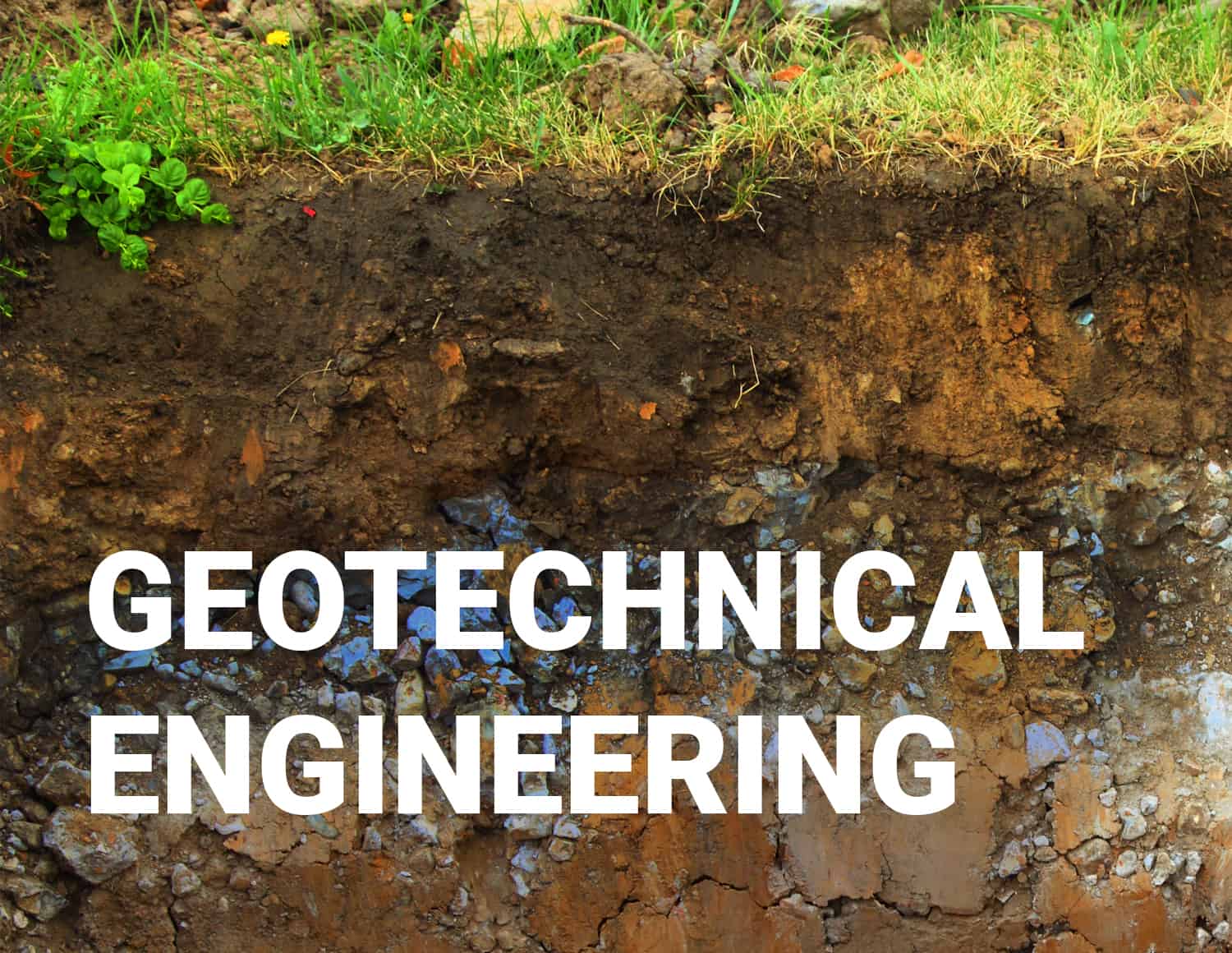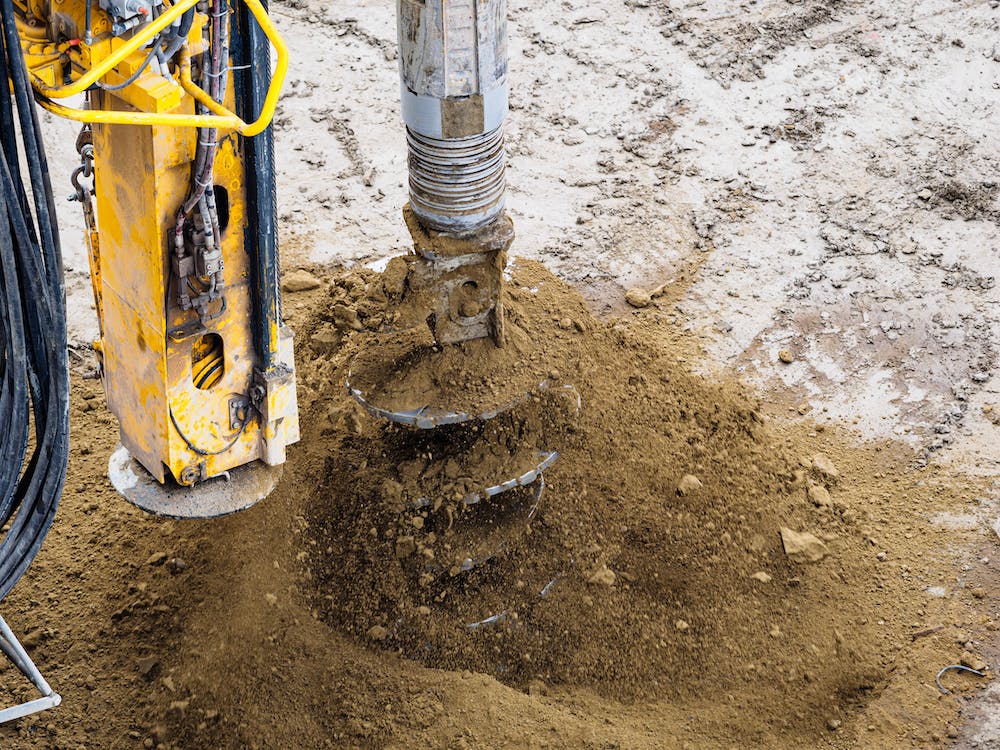Leading Geotechnical Companies in South Africa: That You Need to Know
Leading Geotechnical Companies in South Africa: That You Need to Know
Blog Article
The Significance of Geotechnical Engineering in Resolving Ecological Obstacles and Enhancing Construction Safety
Geotechnical design serves as a cornerstone in the junction of environmental stewardship and building safety and security, supplying vital insights right into the behavior of dirt and rock under various problems. By executing tactical website investigations and customized reduction steps, geotechnical designers play an important duty in protecting both human lives and eco-friendly integrity.

Function of Geotechnical Engineering
Geotechnical engineering plays a vital function in the style and building and construction of framework by attending to the habits of soil and rock materials under various problems. This area of design is crucial for recognizing the communication between structures and the ground, which consists of identifying the load-bearing capacity of soil, assessing security, and anticipating prospective negotiation or failing.
Geotechnical engineers are responsible for performing website investigations, which involve tasting and screening soil and rock to gather information on their chemical and physical buildings. This info is vital for creating structures, maintaining walls, and other earth-retaining structures that ensure security and longevity. Furthermore, geotechnical design informs the selection of suitable building approaches and products, thus decreasing dangers connected with soil habits.
Moreover, the assimilation of geotechnical engineering concepts right into urban preparation and environmental monitoring is important for resolving obstacles such as ground contamination and groundwater management. By recognizing geotechnical factors, engineers can establish sustainable solutions that improve the strength of infrastructure against natural dangers, while also advertising environmental stewardship. Ultimately, the role of geotechnical engineering is crucial for attaining risk-free, durable, and environmentally conscious building practices.
Soil Disintegration Reduction
Dirt erosion positions a substantial hazard to both environmental security and infrastructure stability, affecting around 24 billion tons of fertile soil lost yearly worldwide. This phenomenon is exacerbated by elements such as deforestation, urbanization, and bad agricultural methods. Geotechnical design plays a crucial duty in creating reliable dirt disintegration mitigation strategies that protect both the environment and construction projects.
One approach requires the implementation of erosion control methods such as plant life growing, which maintains dirt via origin systems. Furthermore, the building of maintaining walls and terraces can efficiently lower surface area overflow and safeguard susceptible areas from disintegration. Correct water drainage style is also essential; it minimizes water buildup and routes excess drainage far from vital structures.
Moreover, geotechnical designers utilize soil stablizing strategies, such as the application of geotextiles and naturally degradable mats, to boost soil cohesion and stop deterioration - geotechnical engineer description. Routine monitoring and analysis of erosion-prone sites make it possible for timely interventions, guaranteeing lasting sustainability. By integrating these approaches, geotechnical engineering not just reduces the impacts of dirt erosion however also adds to the resilience of facilities against environmental obstacles, inevitably promoting a safer and a lot more lasting built environment
Groundwater Security Techniques
Groundwater offers as an important source for drinking water, agriculture, and commercial processes, making its security crucial for environmental sustainability and public wellness. Effective groundwater defense strategies are vital in minimizing contamination risks and making sure the long life of this resource.

Normal monitoring of groundwater top quality is likewise important, making it possible for very early detection of contamination resources and helping with timely removal efforts. Using advanced modern technologies, such as geophysical surveys and remote picking up, aids in identifying prospective threats to groundwater books.
Furthermore, public education and learning and stakeholder engagement are critical, fostering area support for groundwater defense initiatives. about geotechnical engineering. By integrating regulatory procedures, technical advancements, and description neighborhood participation, we can create a detailed structure that safeguards groundwater resources while promoting lasting development and building techniques
Landslide Threat Management
Landslides present substantial threats to both human security and framework, making effective risk administration approaches important. Geotechnical engineering plays a crucial function in recognizing, analyzing, and mitigating landslide risks. An extensive understanding of slope stability, soil auto mechanics, and hydrology is essential for developing effective risk administration plans.
The initial step in landslide danger monitoring entails comprehensive site investigations, which include geological mapping and soil testing. These investigations help designers assess the potential for landslides by determining critical elements such as slope angles, dirt composition, and water content. Utilizing innovative modern technologies such as remote picking up and geophysical studies can enhance the accuracy of these assessments.
Once threats are recognized, proper reduction steps can be carried out. These might include engineering solutions such as preserving wall surfaces, drain systems, and slope stabilization strategies. Keeping about his track of systems should be developed to discover signs of ground activity and adjustments in water levels, permitting for positive interventions.

Enhancing Building Security
Building websites commonly present a myriad of risks that can endanger worker safety and project integrity. Geotechnical engineering plays a crucial role in improving building safety by offering important insights right into subsurface problems. With detailed soil and rock analysis, geotechnical designers can recognize prospective dangers, such as soil instability, groundwater concerns, and seismic susceptabilities, which might endanger the security of construction activities.
Executing geotechnical services, such as proper foundation layout and the use of maintaining structures, alleviates these threats considerably. These options not only make sure the security of the structures being constructed but likewise develop a safer working more info here setting for construction workers.
In addition, fostering a culture of safety with training and adherence to developed safety and security protocols even more improves building site security. By incorporating geotechnical expertise into the planning and execution phases, construction projects can achieve higher safety standards, ultimately shielding employees and ensuring effective task conclusion.
Final Thought
Finally, geotechnical design acts as a crucial discipline in promoting and taking on environmental difficulties building security. Through effective dirt disintegration mitigation, groundwater protection strategies, and landslide threat administration, geotechnical engineers add to the growth of resistant facilities. The integration of these practices cultivates a much safer construction setting and boosts the sustainability of civil design projects. Inevitably, the experience of geotechnical designers is essential in safeguarding both natural deposits and human lives versus prospective risks.
Geotechnical engineering offers as a foundation in the junction of environmental stewardship and building safety and security, offering essential insights right into the actions of soil and rock under various conditions. Geotechnical engineering educates the selection of appropriate building and construction approaches and products, consequently reducing risks connected with soil habits.
Geotechnical engineering plays a pivotal function in developing reliable soil disintegration reduction strategies that safeguard both the environment and construction projects.
Moreover, geotechnical designers utilize dirt stabilization techniques, such as the application of geotextiles and biodegradable floor coverings, to enhance dirt communication and protect against degradation. With comprehensive dirt and rock analysis, geotechnical designers can recognize prospective risks, such as soil instability, groundwater concerns, and seismic susceptabilities, which might compromise the safety and security of building and construction activities.
Report this page